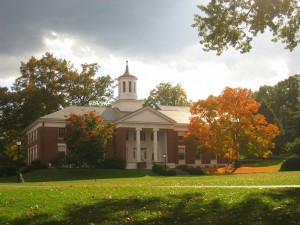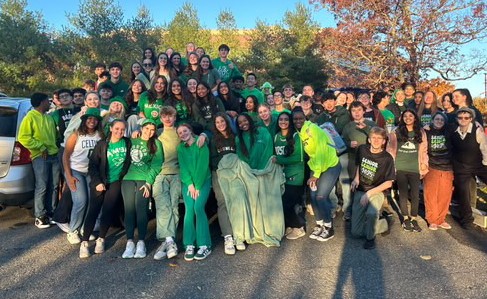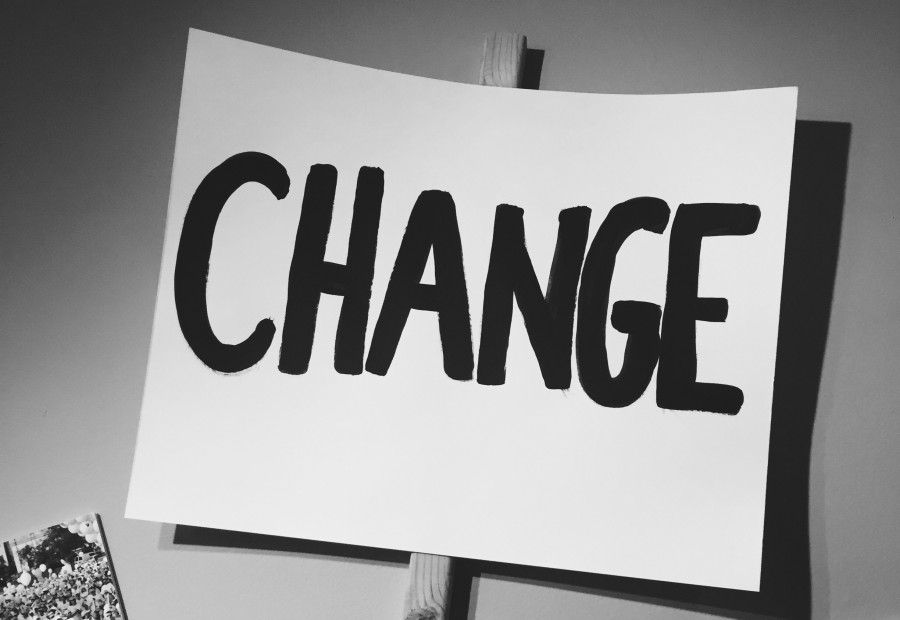The risk of abusing an effective tool
Irrational protest demands can obscure important issues
Organized protest has long been a tool to try and effect change.
Are people, particularly college students, taking advantage of protesting as a political tool? Is it a way to make unfair and, some might say, irrational demands? Or is it the ultimate way to effect change?
The tactic dates far into the past and peaceful protesting was used very effectively by iconic activists Mahatma Gandhi and Martin Luther King Jr. in the 20th century. Gandhi helped to gain India’s independence and Dr. King spearheaded the civil rights movement in America.
So how is this relevant today?
Protesting is a common and powerful way to focus attention on an issue. The question, though, becomes: Is it for something that needs a fight?
If the tactic is abused, is there a risk that it loses its power and effectiveness for things that actually need changing?
Take the events that began last fall at Amherst College, for instance. Students at the private liberal arts school staged a sit-in on Nov. 12 with the intention of standing up for African American students who feel they are being marginalized and threatened.
Sounds intense, doesn’t it? Well, the only thing that some people might say is intense about the movement is the demands.
According to the students involved, Amherst has a “racial atmosphere,” one that has greatly affected them, most of it in a detrimental way. Activists presented Dr. Carolyn “Biddy” Martin, president of the college, with a list of 11 demands.
Many of them have caused a stir and led to national attention and coverage across major media outlets. The Atlantic editorialized that three of the first four demands “requested statements [that] would serve no real function save for the students to have their world view validated by adults.”

Many of the 11 demands issued by students at Amherst College were seen as extreme.
The publication reported that students’ prime demand is for Dr. Martin to apologize for the college’s “institutional legacy of white supremacy, colonialism, anti-black racism, anti-Latinx racism, anti-Native American racism, anti-Native/indigenous racism, anti-Asian racism, anti-Middle Eastern racism, heterosexism, cis-sexism, xenophobia, anti-Semitism, ableism, mental health stigma, and classism.”
Wow. That’s a lot of apologizing.
What’s baffling about this demand is that the activists are insisting that Dr. Martin should apologize for these issues as if she is directly involved with them at the college.
I understand where the activists are coming from and how they feel about dealing with racism in school, but asking the college president to apologize for a list of racial issues that have happened throughout the school, throughout its history, is borderline crazy.
I think it would’ve been better if they asked to have some type of meeting to address student concerns and to seek apologies from specific people engaging in “racist behavior” and to try and reach some level of understanding.
The demands seen as outlandish serve to deflect attention from issues that should, indeed, be addressed. This includes the demand to get rid of the school’s mascot, Lord Jeff. To be honest I had no idea who Lord Jeff was until researching this piece, but it’s an interesting point.
According to The New York Times, activists insisted that the president condemn the “inherent racist nature” of Lord Jeff, a nickname for Jeffery Amherst, for whom the town and the college were named. Amherst was a British army officer who advocated giving Native Americans smallpox blankets during the French and Indian War.
Ok, I see why the activists would want Lord Jeff gone. The mascot bearing the name of a man who urged the use of biological warfare is a representation of their school. I wouldn’t want the symbol of my school to have a history of intentional smallpox transmission either. That’s just evil.
Another demand is much more complicated. I don’t disagree with it but I also don’t agree with it.
Activists demanded that Dr. Martin issue a statement to the Amherst College community at large stating that:
“We do not tolerate the actions of student(s) who posted the ‘All Lives Matter’ posters, and the ‘Free Speech’ posters that stated that ‘in memoriam of the true victim of the Missouri Protests: Free Speech.’ Also let the student body know that it was racially insensitive to the students of color on our college campus and beyond who are victim to racial harassment and death threats; alert them that Student Affairs may require them to go through the Disciplinary Process if a formal complaint is filed, and that they will be required to attend extensive training for racial and cultural competency.”
The use of “All Lives Matter” came about after the use of the “Black Lives Matter” slogan resulting from the Black Lives Matter movement. Some people have interpreted the slogan “Black Lives Matter” as meaning that Black lives matter and other lives don’t, thus resulting in the use of “All Lives Matter.”
The Black Lives Matter movement doesn’t say that Black lives are more important than other lives. The movement is saying only that, yes, all lives do matter, but if all lives do matter, why are so many unarmed Black men and women being killed in the hands of police?
I can totally understand the frustration of the activists at Amherst College, but demanding that students who posted the “All Lives Matter” posters potentially go through the school’s disciplinary process and require them to receive sensitivity training is kind of extreme.
Unfortunately, rational concerns and fears get lost among others seen by many as irrational or senseless, leading to the rejection of almost all (the Amherst faculty did vote unanimously in a non-binding vote to eliminate Lord Jeff as the college mascot; the matter goes before the school board of trustees this month).
The students at Amherst College may have had good intentions, but their demands were somewhat outrageous, sadly affecting some cultural issues that need actual addressing and dialogue.
I wouldn’t call their demands senseless because it seems they put a lot of thought into what they wanted.
But I will say that they were asking for too much. Protesting is a valuable tool, but the abuse of that tool is a dangerous thing.

Maggie Barjolo is a senior and has been attending AMSA since the 6th grade. Being part of the oldest class at AMSA, she wanted to leave her “footprint”...




